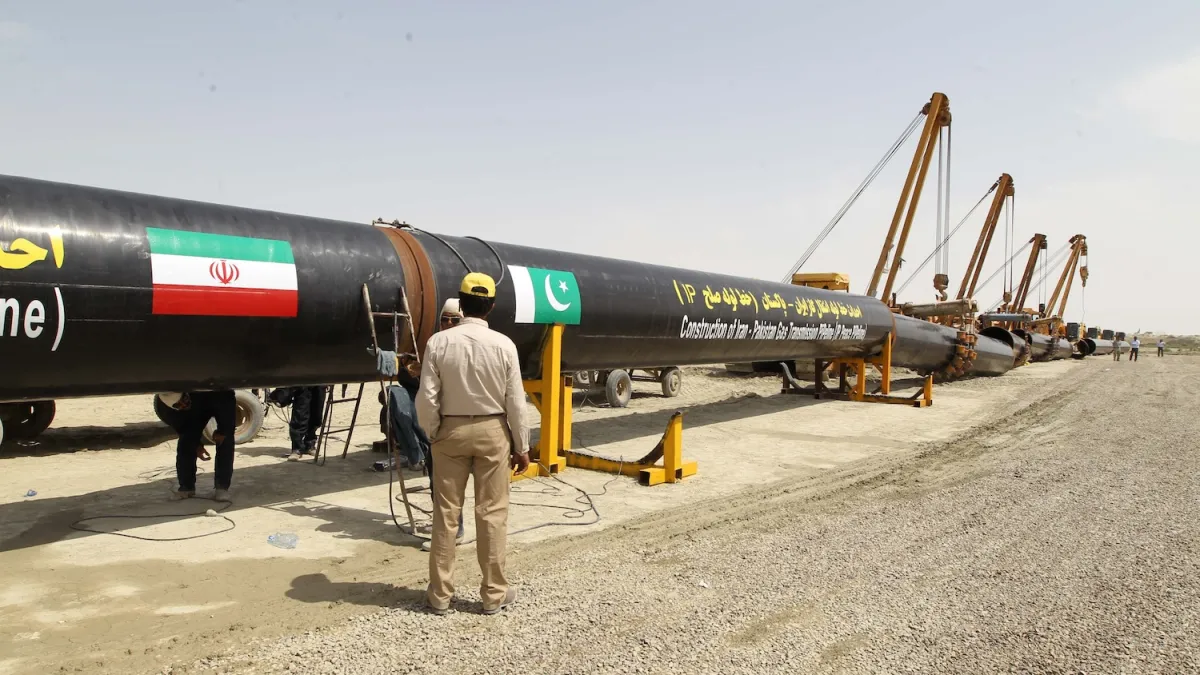Iran-Pakistan Gas Pipeline: A Crucial Initiative for South Asian Energy Security
The Iran-Pakistan gas pipeline project, often referred to as the IP pipeline, is becoming increasingly pivotal for energy security in South Asia. As regional economies face growing energy demands, this pipeline stands out as a viable solution, offering a reliable source of natural gas from Iran to Pakistan. The project, which has been in the pipeline for over a decade, promises to alleviate energy shortages and foster economic cooperation between the two neighboring countries.
Muhammad Soroush, a leading analyst from Tehran and head of the Saramad think tank, emphasizes the importance of this project. He asserts that the completion of the pipeline is essential for diversifying energy sources in South Asia, which is heavily reliant on traditional fossil fuels. With Iran having finished the construction on its side, the onus is now on Pakistan to advance its portion of the project.
Experts point out that the pipeline could transform Iran into a central player in the South Asian energy landscape. As the region grapples with increasing energy demands, the pipeline could provide a steady supply of natural gas, which is crucial for industrial growth and power generation.
The geopolitical context adds another layer of complexity to this project. Naade Ali, a researcher at the Middle East Institute in Washington, indicates that the United States views energy cooperation between Iran and Pakistan as a potential pathway to a more strategic partnership. He suggests that Pakistan must navigate its energy diplomacy carefully, separating geoeconomic interests from geopolitical tensions, particularly in light of U.S. sanctions against Iran.
Additionally, Dr. Khalid Waleed, an energy expert at the Sustainable Development Policy Institute, highlights the necessity of reforming Pakistan's energy policy to prioritize industrial growth. He points out that while energy shipping routes are vulnerable to geopolitical conflicts, the pipeline serves as a more stable and efficient alternative.
Another prominent voice in the discussion, Dr. Somaye Morovati from the Center for Middle East Strategic Studies, advocates for enhanced cooperation between think tanks in Iran and Pakistan. She stresses that mutual understanding of governance systems will bolster energy collaborations and counterbalance U.S. strategies in the Indo-Pacific region, which often overlook the energy dynamics between Iran and Pakistan.
Jauhar Saleem, President of the Institute of Regional Studies, underscores the economic potential for collaboration between the two nations. He notes that energy pipelines are generally more cost-effective than maritime transport and that natural gas is a cleaner alternative to oil, making it an appealing choice for both countries. However, he warns that ongoing U.S. sanctions on Iran pose a significant challenge to the project's viability.
In conclusion, the Iran-Pakistan gas pipeline project represents a critical step towards enhancing energy security in South Asia. As both countries strive for greater economic cooperation, the successful implementation of this initiative could pave the way for a more interconnected and sustainable energy future in the region.
Read More






 Monday, 09-02-26
Monday, 09-02-26







